Living like a nomad
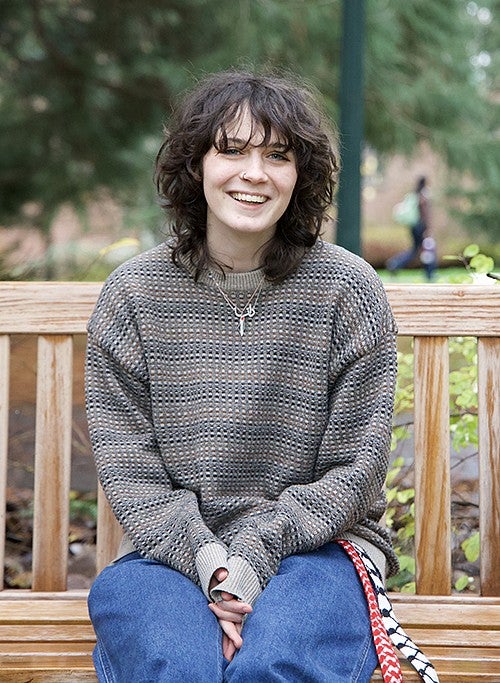
What's in the fridge: Always gotta have spinach artichoke dip.
Favorite classes at the CHC: I’ve loved all of them, but HC 231 Muslims in America with Yalda Asmatey and HC 101 Garden and the Wall with Gantt Gurley.
Guilty Pleasure: Minecraft
Favorite movie: “Monkey Man”
Role Model: My mom and my grandma. They're just incredible women and have lived such amazing lives.
The living room walls of Danna Rubesh’s apartment are lined with family portraits, art and mementos from her time living across the world. A cup of tea sits on a coaster engraved with artwork in the shape of Palestine and she wears necklace with a pendant that matches.
Born in the United Arab Emirates, Rubesh has also lived in Oman, the Czech Republic, Costa Rica, Israel, Japan, and England before moving to Eugene as a student in the Clark Honors College.
Her father currently works with the U.S. State Department in Jordan. A 1996 graduate of the CHC, his uncle also was a student at the Honors College in the 1970s. Next year, her parents will move again, this time to Germany.
By the time Rubesh graduates from the CHC in 2026 with a degree in global studies, she will have spent more time in Eugene than any other place she’s ever lived. It’s fitting that she considers the CHC to be her home. “I definitely have some cultural whiplash,” she says.
Despite all the moves, Rubesh says her experience gives her a unique perspective and allows her to foster community wherever she is at the moment. “My moves really forced me to become good at making friends, so I was able to find communities quickly,” she says.
It’s also led her to explore and develop her passion for human rights. Her mother, Erin, grew up in Gaza, living there for 13 years while her parents served as missionaries working at a Baptist hospital.
Rubesh relied on her family history and her creativity in one of her CHC classes to create a short video on her mother’s experience in Gaza. It came at a time when the world was wondering if true peace between Israel and Palestine would ever happen, given the circumstances of the Hamas attack on Oct. 7, 2024.
Rubesh plans to use her CHC thesis project to further her interests in international policy, while exploring her family’s Gazan roots. “I’ve found an outlet through writing, through research, but especially through the Honors College,” she says.
She credits her professors and instructors for pushing her to use her classes to investigate what matters most to her. Rubesh hopes to turn an international lens on Palestine, while examining the functions of how international organizations like the International Criminal Court and the United Nations can be used to expose abhorrent behavior by certain countries. For her, urging everyone to come to a peaceful solution is her personal mission.
She credits her academic experience in the Honors College, including developing plans for her thesis, as helping her grow as an individual. “Having an honors thesis has really pushed me to engage critically with the issues I care about,” she says. “It has given me a chance to express myself and make sense of my own world. It really has helped keep me sane when things feel so hopeless.”
This interview with Rubesh has been edited for brevity and clarity.
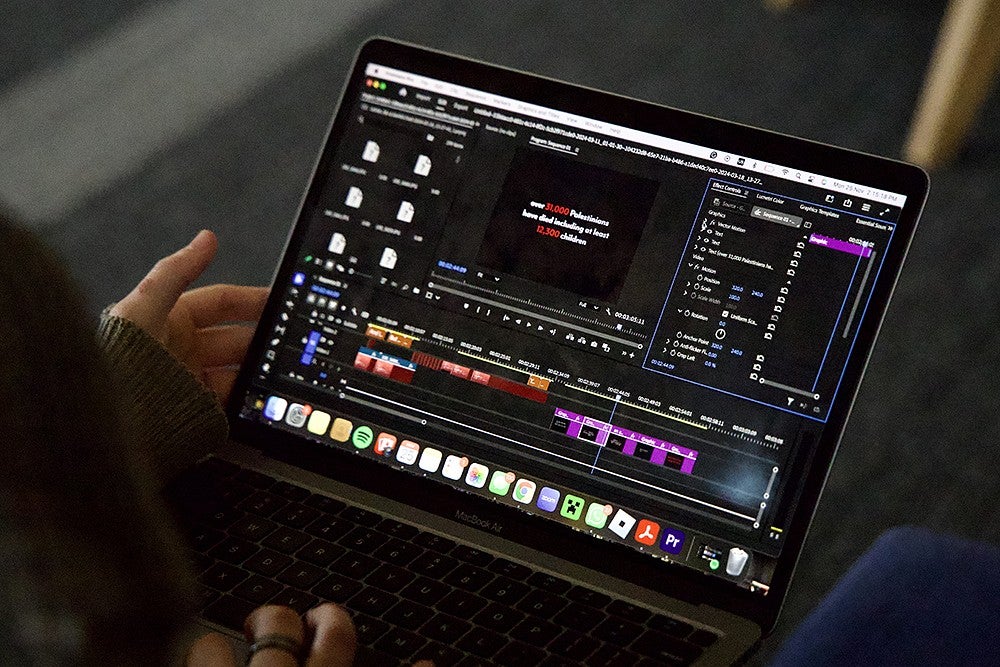
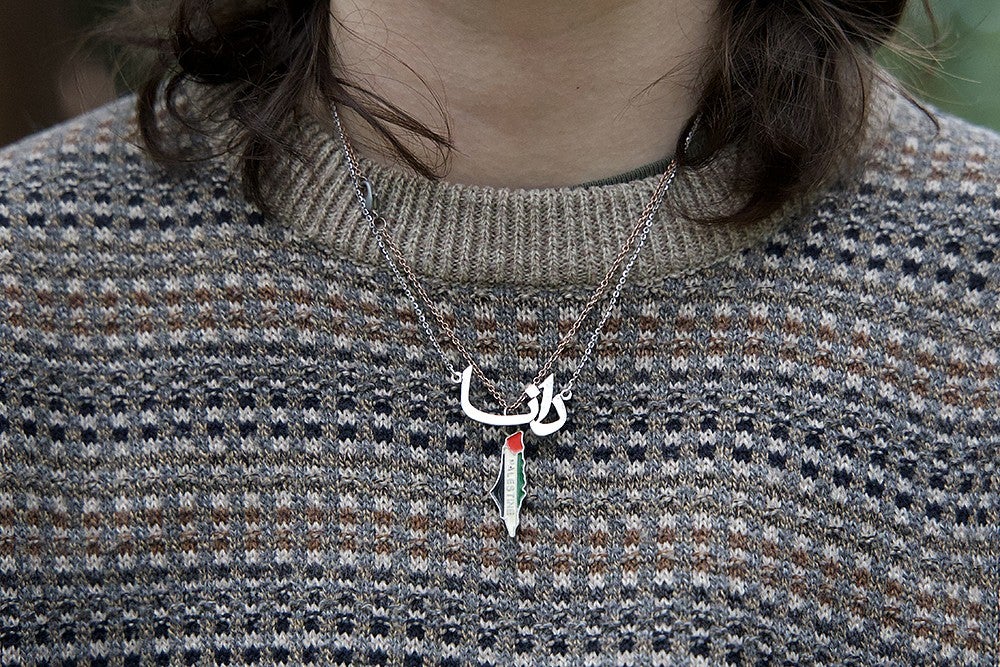
How has your family served as a support system through your constant moves?
When we get to a new place, all we have is each other. We don't have our stuff. We don't know anybody. We move every three years, and the only constant is my family. We lean on each other so much throughout all the changes in our lives. I especially lean on my brother, Kyler. He is coming to UO next year, which I am super excited about.
Was it difficult to move so far away?
The biggest change for me was realizing in the first month or so that I’m alone and without my family. It can be frustrating at times to hear my friends talk about going back home for the weekend or that their parents are coming for Parents Weekend. I am lucky to have found such a strong support system with my friends here in Eugene.
By the time you graduate, Eugene will be the place where you have lived for the longest amount of time.
It has flown by. It doesn’t feel like I’m in my third year. It feels like I’ve been here for a lot less time. It’s been nice to settle in a little bit more, because normally in my third year (when I was growing up), I’d think: “OK, it’s my last year here. I’ve got to start thinking about moving and starting to create that distance so it’s not as hurtful when I move.”
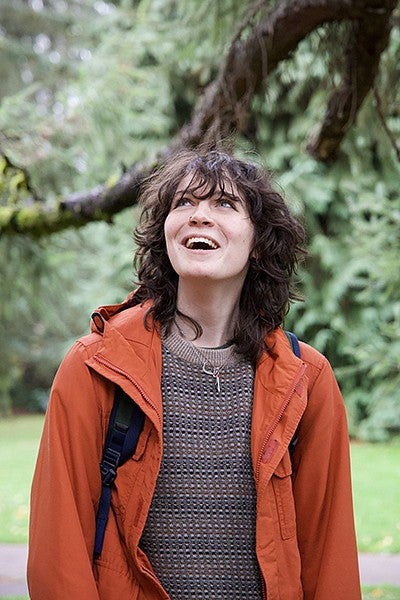
How has that made you more resilient?
(It) forces you to just entrench yourself in communities. It’s taught me how to find my community and leave it, and then find another community. Culturally, I had to adapt to a different culture every three years, while trying to maintain cultural sensitivity and respect everywhere our family went. And I had to learn how to adapt my own behaviors a lot to stay culturally ethical and relevant.
What places stood out the most to you?
I do really love Japanese culture. I love the food and I learned the language at one point. It’s definitely a culture that I want to go back to and explore more because there’s so much to it. I made a lot of friends that I still have today.
How has your life abroad given you a deeper passion for human rights?
Because of my upbringing, I’ve always been aware of how pervasive human rights issues are in our world. Seeing discrimination in places like Jerusalem and the West Bank firsthand has been super impactful on me. I want to do something that will make the world a little bit of a better place, whether that is at an international organization or the State Department. I think I will probably end up working for the State Department at some point like my dad. It’s the best way to make systematic change, and if people who want to make change stay away from the government, then nothing will ever change.
How have your family roots in Gaza affected you?
It’s been really hard. The hospital that (my mother’s) parents worked at was the first one that was bombed, and I think that was a moment where we all woke up thinking: “Oh, this conflict is happening, and it’s affecting us directly.” People that my grandma worked with were killed, and it’s been just really hard to see that, at least for me, and to be so far away from it. After October 7, it was a very isolating event that I felt like only I was experiencing.
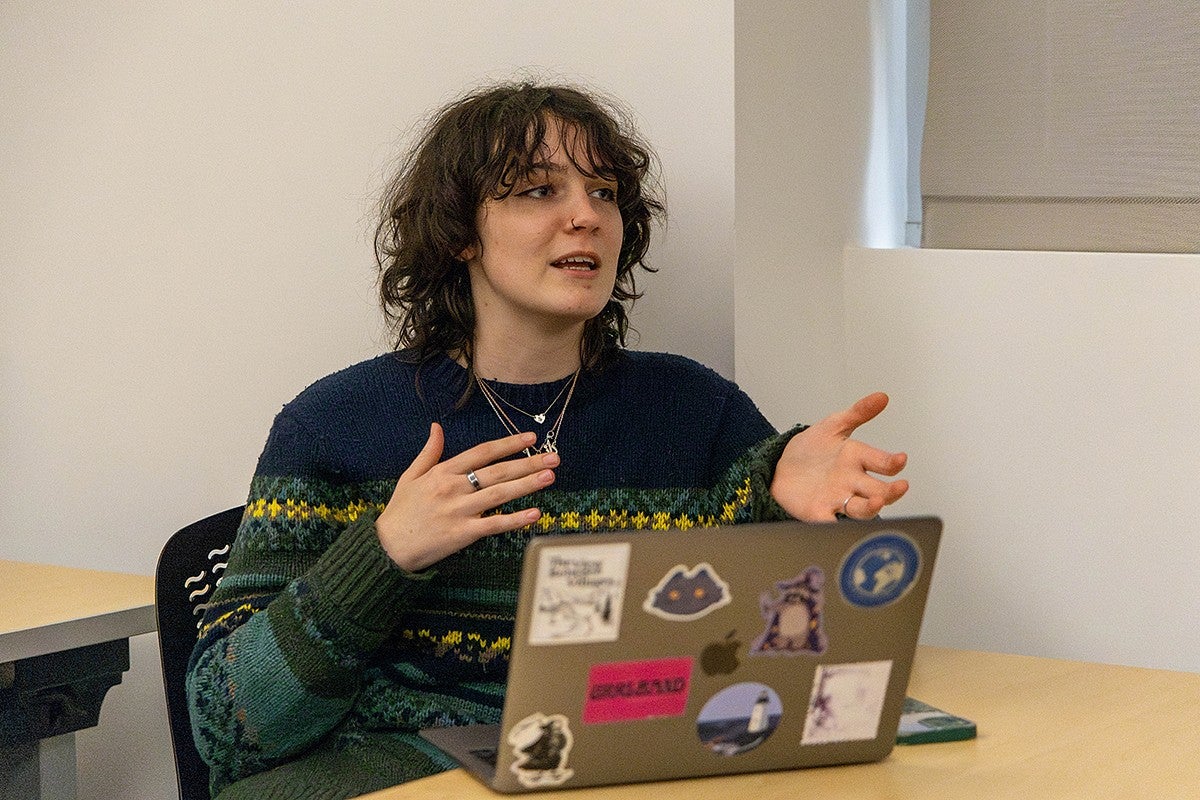
Who is someone at the Honors College who has really made an imprint on you?
I took (a CHC class) Muslims in America with Yalda Asmatey and she was such a rock. I took her class in the fall when the war started in Gaza. That was also an incredibly isolating time in my life because no one in my inner circle really even was aware of Palestine to the extent that I was. Yalda was one of the few people that had that common understanding that I knew. On October 7, she emailed me to check up on me. The care that she took to go out of her way to make sure that I was OK, even though it was like I’d been in her class for a week, was really special to me. Within her class, she gave us space to kind of just talk about our own experiences and like how we're being affected by the war. That was impactful.
How has the Honors College empowered you to be creative and stand up for your beliefs?
In my Short Film Form Honors College class with Professor Christopher Michlig, I got to make a film about my mother’s upbringing in Gaza and the generational effects of war through the memories she instilled in me. That was such an incredible experience, because I so badly needed an outlet to just process all of my emotions. I took this class and film became my outlet. I bought a little camera and I went around filming everything that I could. I'm really proud of the film that I made, and my dad shared it around the embassy, and the ambassador to the embassy in Jordan said that she liked it. I think that the Honors College has been the best part of my experience at UO, just the fact that you’re able to connect so personally with professors has been extraordinary.
